Chemical Fertilizers - Do they Affect Long Term Health of Roses?
Last year I fertilized with a chemical fertilizer for the first time. I used Vigoro 12-6-10 in March and June, and WOW did it make my roses pop.
I'd love to continue same this year, but I don't want to add anything for short term gain, that will impact the long term health of my roses. I'm pretty sure there is a line somewhere, where use of chemical fertilizers can be bad for roses. Would be interested to know where that line is?
Comments (95)
roseblush1
11 years agoSo, Linda, how do you know that each of us are not doing our part ?
I have a no spray garden for the reasons you mention above .. to do my part, but I will continue to use chemical fertilizers until my soil builds to where is is viable and can support plant growth and am quite aware that over use of any chemical can cause damage to soil organisms and/or be pollutants.
Generalizations again. tsk, tsk.
Lyn
Related Professionals
Hershey Landscape Architects & Landscape Designers · North New Hyde Park Landscape Architects & Landscape Designers · Waunakee Landscape Architects & Landscape Designers · Garden City Landscape Architects & Landscape Designers · Wakefield Landscape Contractors · Andover Landscape Contractors · Bedford Landscape Contractors · Edinburg Landscape Contractors · Farmington Landscape Contractors · Fort Payne Landscape Contractors · Framingham Landscape Contractors · South Hackensack Landscape Contractors · St. Louis Landscape Contractors · White Bear Lake Landscape Contractors · Irvington Landscape Contractorslbuzzell
11 years agoHi Lyn,
I'm glad to hear that most rose folks are doing their part. Thanks to all who are doing so.
My understanding is that there is no need to use chemical fertilizers on roses. Our roses do fine on organic fertilizers, compost and mulch. And of course when most of our heritage roses were born, that's exactly what they were fed! Dean Hole, one of the founders of the UK Rose Society, waxed poetic about manures in his "A Book on Roses."
For more info on the problems with chemical fertilizers, whether they're put on golf courses, parks or backyards: http://www.organicconsumers.org/corp/oceans101104.cfmhenry_kuska
11 years agoThe following was stated: "There should be a tremendous difference between the 20# of 5-4-3 I put down in a garden and the 40#+ of at least 16% nitrogen their lawn guy dumps on the Marathon 2 monthly."
H. Kuska comment: "maybe" this assumption ("40#+ of at least 16% nitrogen their lawn guy dumps on the Marathon 2 monthly") was accurate in the past but now the lawn service companies appear to be responding to environmental concerns (please notice even the "big names" in the Google search).
Since it appears that "some" will not open links, here is an example of what Scotts lawn service offers to those who are concerned about the environment:
"Scotts LawnServiceî Organic Choiceâ¢
Lawn Care Programs
ThereâÂÂs more than one way to get a Scottsî Lawn. With Scotts LawnService Organic Choice⢠programs, you can feed your lawn all season long using 100% natural fertilizers. These fertilizers are even more kid and pet-friendly, so you and your family can enjoy your lawn immediately after they're applied. And they work on any type of grass in any climate."http://www.scottslawnservice.com/sls/templates/index.jsp?pageUrl=slsAboutOrganics
--------------------------------------------Here is a link that might be useful: Google results for home organic lawn service
roseseek
11 years ago"Healthier" options abound for everything, Henry, and they're great....when followed. However, from personal experience, many who have popped for the name brand turf, deliberately seek out the name brand fertilizer believing it is the best for their expensive sod. The top name specified around here is Marathon and their fertilizer is:
Formulated especially for your Marathon Lawn.
Nitrogen-rich for quick greening.
Three fertilizers in one, using three application rates:
Quick Boost - revives faded lawns with a high nitrogen formula.
Winter - high nitrate gives relief to yellowed lawns in cooler weather.
Maintenance - provides the right balance of nutrients to keep lawns green and looking lush no matter the season.The "starter mix" contains 15% nitrogen; the "maintenance" type contains a whopping 25%. Stand outside the big box stores and garden centers here and watch the tonnage of it flowing out of them. Kim
Here is a link that might be useful: Marathon fertilizers
henry_kuska
11 years agoIn the past many people smoked, did not use seatbelts, used arsenic in the garden etc. What people did (or are doing) is interesting, but hopefully should not serve as a rational for future actions.
One of the purposes of scientific research is to determine what is safe for us individually, our families, our neighborhood, and for the environment now and in the future. Those who looked at the EPA link found that:
"Nitrous oxide molecules stay in the atmosphere for an average of 120 years before being removed by a sink or destroyed through chemical reactions. The impact of 1 pound of N2O on warming the atmosphere is over 300 times that of 1 pound of carbon dioxide."
i.e. one's use of synthetic fertilizer is contributing to global warming for an average of 120 years. With a generation interval of 30 years, this means that todays use of synthetic fertilizer will affect at least 4 generations. Of course there is always the possibility/probability/fact that some other route is contributing more. Personally, I do not accept that as a justification for not doing my part.
--------------------------------------
There are scientific studies of synthetic fertilizer problems generated by the home user but I have not yet found one, that I could access free, that separated lawn and garden contributions. Perhaps this Seattle one (published in The International Journal of Life Cycle Assessment)
does (I do not have free access to the complete article):http://link.springer.com/article/10.1065%2Flca2007.07.350?LI=true
"Background, Aims and Scope
Measuring Environmental Value for Natural Lawn and Garden Care Practices provides a life cycle assessment and impacts valuation methodology to quantify environmental (public health and ecological) and water conservation benefits from natural lawn and garden care practices in Seattle. Seattle Public Utilities (SPU) initiated this study as part of a triple-bottom-line analysis of its Natural Lawn and Garden Care program."Here is a link that might be useful: EPA link presented earlier
roseblush1
11 years agoLinda... you understand that chemical fertilizers are not needed on roses.... geesh...did you bother to read my post above ? When you start with dead soil and are working to build it to viable soil, you cannot grow vegetables, fruit or ornamentals. Please read my post above and you will see a description of the soil I am working with.
Not all soils are equal.
Lyn
harmonyp
Original Author11 years agoLyn, I'm not following my own advise am I !!!
How many fruits and vegetables do you guys think you eat that haven't been chemically fertilized, with every imaginable "cide" applied to them you can imagine. I live in ag central - you should see the planes and helicopters flying over spraying horrible toxins on the food you buy from the grocery stores. Not even getting into the discussion of bioengineered foods. If you eat meat, do you have any idea of the hormones, antibiotics and other chemicals you are getting through your meat?
Peanut butter causes cancer in labratory rats. I'm sure so does tea, coffee, water from plastic containers. We're all hosed. So I'm putting chemical fertilizers on my roses. Done. Thanks all!
henry_kuska
11 years agoGoogle should be of help if one is interested in restoring dead soil. The link below gives the hits for the keywords:
restoring completely dead soil
Please notice that I did NOT search only for:
organic methods of restoring completely dead soil.
Maybe it was sheer "luck" but most of the links I looked at did not mention using syntheic fertilizer (to be specific only one did).
Here is a link that might be useful: Google search
roseblush1
11 years agoYup... sheer luck. All focused on top soil, not subsoil.
But thank you for trying, Henry.
caldonbeck
11 years agoYou can grow roses I'm sure with manure and mulches alone but not to the quality you'd like. I don't think anybody is saying chemical ferts improve soil but they help thing grow in a less healthy soil. Don't forget how much methane comes from compost production and belching ruminants.
sandandsun
11 years agoI present for the reader's pleasure the recommendations of The American Rose Society. Published by the ARS and available online and as a downloadable pdf reference from the link below.
Please enjoy.Here is a link that might be useful: Fertilizers:When and How (published by the ARS)
Tessiess, SoCal Inland, 9b, 1272' elev
11 years agoEgads! If I followed even the least grueling regimen the ARS recommends, I'd probably have a coronary.
Melissa
lbuzzell
11 years agoI keep thinking about this thread. The idea that without chemical fertilizers you can't have the best roses just doesn't wash. The amazing Master Rosarian who does Oprah's roses is a member of our local rose society. Oprah demands total organic care of her roses because she uses the petals in her bath (yes, it would be nice to be a billionaire!)and also wants the best blooms for the house. She gets both, of course. Apparently one of the secrets is something called the Island Seed & Feed Landscape Mix - a totally organic fertilizer that gives roses everything they need to bloom their hearts out. Island Seed & Feed is an organic nursery in Goleta, CA not too many miles from Oprah's Montecito estate.
caldonbeck
11 years agoOh god, here I was thinking this thread had died. If Oprah does it I'm sure everybody on gardenweb will start to follow suit.
eahamel
11 years agoI have nothing scientific to add, but will say that I use both organic and chemical fertilizers on my plants. I prefer organic, but my dogs love it, too, and will dig it out and eat it. So, I have to bury it and put coffee grounds over it, or dissolve it in water and pour it on, or use chemicals. It depends upon my time and energy which I use.
harmonyp
Original Author11 years agoI was looking for Vigoro but couldn't find big bags, so yesterday I bought three 20 lb bags of Scotts 12-4-8 Rose & Bloom Continuous Release Granules, on sale at Lowes for $17.99 a bag. That should take care of my roses for the year.
henry_kuska
11 years agoBackground reading:
http://www.dirtdoctor.com/Synthetic-Fertilizers-Environmental-Risks_vq1404.htm
Here is a link that might be useful: Synthetic-Fertilizers-Environmental-Risks
Maude80
11 years agoThat's interesting to read what Oprah uses, but I can't understand why she would put the petals in her bath. I mean, they can't go down the drain with the water because it would get clogged. Therefore, wouldn't a servant have to scoop all of the petals out afterwards. Perhaps I am overthinking this:)
Maude
roseseek
11 years agoI'd imagine the total effects of one pound of pure nitrogen from either source would be the same, Michael. I guess the primary difference would be that one pound of nitrogen from urea would take much longer to be released than one pound of nitrogen from sulfate of ammonia. Perhaps the slower release over a longer period permits it to be utilized in the atmosphere more efficiently, causing less "pollution"? I dunno. Kim
henry_kuska
11 years agoOf course once the nitrogen is released, it behaves the same per pound.
The important question is how much nitrogen escapes (does not go to feed the plant) per pound applied?
"Losses of N via denitrification as N2 or N2O gas can be important under some conditions, but are generally small enough to be ignored in estimating PAN from manure."
PAN is "plant-available nitrogen".
http://extension.oregonstate.edu/catalog/pdf/em/em8954-e.pdf
As an aside, please read the area in blue titled:
"The Environment and N Loss from Manures�Why Do We Care?"The advantage of organic fertilizers in being more efficient delivers of nitrogen is supported by actual reseach. The following is a recent scientific review:
http://www.sciencedirect.com/science/article/pii/S0167880912003489"Highlights
⺠Information about N2O emissions from Mediterranean crops was analyzed. ⺠Direct N2O fluxes are generally lower for organic than for synthetic fertilizers. ⺠Irrigation highly increased emissions, but the increase was lower with drip irrigation. ⺠The most promising practices, constraints and research gaps have been summarized. ⺠Further research is needed to fully understand and develop N2O mitigation potential."Here is a link that might be useful: link to above quote
henry_kuska
11 years agoThe "link to above quote" is misleading. It is the link to the first quote. The link to the scientific review is given below:
http://www.sciencedirect.com/science/article/pii/S0167880912003489Here is a link that might be useful: link to scientific review
roseblush1
11 years agoOh, Dear....
This means I cannot grow any kind of garden, much less roses. As stated above, my uncultivated soil won't even grow weeds. This is so sad.
Lyn
RpR_
11 years ago" Posted by lbuzzell
One last word of support for Henry. It turns out that home gardeners are a significant source of pollution (sometimes more than farmers), ...."-------To this I say that is a crock of BS.Possible, if you are speaking of those who zap there lawn repeatedly with fertilizer you may have point, but I know no one who repeatedly blasts their garden with fertilizer any where even approaching that put on lawns.
I have never seen anyone running a broadcast spreader up and down his/her garden repeatedly all summer long.
Also foliar feeding does not have the possibility of poisoning anything the way granular does.
And to that, I have never seen anyone broadcast feed a rose garden.kittymoonbeam
11 years agoCan anyone answer this for me? I was told that the Native Americans used to go to where the thunderstorm had been because that was where the nitrogen charged rain had fallen. By this thinking doesn't the lightning put the extra nitrogen in the air into the rain and then to the ground? I also heard that tying up the plants (tomatoes) with nylon hosiery and metal supports will draw nitrogen out of the air and to the plants. Is this true or not?
henry_kuska
11 years agoThe following was stated: "I know no one who repeatedly blasts their garden with fertilizer any where even approaching that put on lawns."
H. Kuska comment: interesting, but in many (most?) neighborhoods that I am familar with most people do not put any or at most once in the spring fertilizer applications on their lawns (those who use a lawn service are the exceptions, and there are not many of them).
One example in the literature.
"Do I really need to fertilize my lawn?
In terms of turf survival, the answer probably is no, since the majority of lawns in Oregon receive little or no fertilizer and are more or less functional."
----------------------------------------Here is a link that might be useful: link for above
harmonyp
Original Author11 years agoKitty, I fear that by putting nylon hosiery in your yard, you may attract some unwanted attention. But somehow I think you may be onto something with the metal - if you put giant pieces out, it may attract lightening to hit the garden, and if the lightening doesn't burn up all the tomatoes, they may well end up fertilized. Or if you fail, you may have a new recipe for fried green tomatoes.
Actually, since we're talking about pollution, I'd like to posit that lawns cause pollution. They are ultimately a waste of prime rose and garden real estate, and the mowers needed to mow lawns certainly pollute the air.
Of course, then again, I am a major polluter by owning horses. You should see the smoldering piles of composting manure. The heat build up is incredible, and you really note the steam coming out in the cold weather. I can't wait until spring so I can apply my chemical fertilizer...
caldonbeck
11 years ago@kittymoonbeam the first is true, lightening fixes nitrogen from the air which is why your lawn always looks greener after a thunder storm. Doubt the metal spikes thing though, don't know why that would work.
kittymoonbeam
11 years agoThere was a garden show on PBS and they showed a man's large tomato garden. He grew about 20 heirlooms and 30+ modern tomatoes. He was using the metal tomato cages and nylons and said it made the leaves greener. I never tried it out to see if I got the same results. If I have room for a few tomatoes, then I have room for another rose! Tomato ladders from Gardener's Supply Co. make great supports for floppy bands just planted out though and they last a long time.
henry_kuska
11 years agoNew nitrogen article.
"A paper just published in Proceedings of the National Academy of Sciences shows the impacts of nitrogen deposition in the environment may extend even further than previously thought. Dr Richard Payne and Professor Nancy Dise, of Manchester Metropolitan University, together with colleagues at Lancaster University and the Open University, studied more than 100 individual plant species� reactions to nitrogen deposition at 153 grassland sites across Europe."
Here is a link that might be useful: link for above
catspa_NoCA_Z9_Sunset14
11 years agoNice article, Henry, about impacts of human input of fixed nitrogen into the biosphere.
An interesting example from the Netherlands that I often use features a common perennial grass that is a phosphorous hyper-accumulator, Brachypodium pinnatum. With nitrogen deposition, it can proliferate and create monospecific stands because, having cornered all available phosphorous in a given area, only it is able to use the excess nitrogen (good example for Liebig's law of the minimum).
The same sort of thing is playing out here in California along freeway corridors, where the exotic annual grasses capitalize on auto emissions to the detriment of native plant species which, for the most part, do not take up and respond to added nutrients the way exotic plant species do. Stuart Weiss at Stanford University has documented these effects on the larval host plant of the now-highly-endangered Bay Checkerspot Butterfly.
Below is a link to a UC Berkeley study that measured the extent that synthetic fertilizers have added to "in-play" nitrogen in greenhouse gas form. As one of the study authors says:
"We are not vilifying fertilizer. We can't just stop using fertilizer," she added. "But we hope this study will contribute to changes in fertilizer use and agricultural practices that will help to mitigate the release of nitrous oxide into the atmosphere."
~Debbie
Here is a link that might be useful: Fertilizer and atmospheric nitrous oxide
dan_keil_cr Keil
11 years agoAll I usually put on is nirtogen because that is the nutrient that is lacking. Our soils in our area are rich in phosphorus and potash so I don't add it. I have a Kelway soil tester and my ph is 6.3. I look at my leaves and they tell the whole story. If they are not a good greencolor something is wrong. Ph will throw off any good fertilizer. I like to use Monty's Joy Juice for my regular fertilizer.
roseblush1
11 years agoMy soil is definitely nitrogen poor and there is no doubt until the soil is built up to where it is viable, I will have to add nitrogen and other nutrients. It's a long process to build soil.
Importing good soil is not always an option, so learning how to work with what you have and still be environmentally responsible is simply ... and difficult at the same time ... part of doing one's part to protect the earth's environment.
As I have thought about this thread, I've realized that there is nothing that we do that will not have some kind of consequence as we are pushing our plants, our soil ... our whole gardens ... to perform in a fashion that is not found in nature. So, to me, it's a matter of balance. I try to do my part, but I cannot manage to do it 100% perfectly all of the time in this garden.
I am grateful to those who point out the impact of over use of chemicals and other practices that harm the environment, because the message does need to get out, but the expectation that all of us can go to organic gardening just because it is "the right thing to do" doesn't take into consideration all of the variables that are a part of gardening.
Just my 2 cents.
Smiles,
LynKippy
11 years agoI found it interesting to hear how much the California Cash Crop growers have contributed to organic fertilizers and pesticides. (from a talk on backyard orchard culture by Tom Spellman of Dave Wilson Nurseries)
Something to be thankful to pot for :)
lucillle
11 years ago"lightening fixes nitrogen from the air which is why your lawn always looks greener after a thunder storm"
Or maybe all the rain washes the dust off the grass.I am very fortunate, I now have 4 guinea pigs who work full time producing fertilizer. Cuter and safer than lightening.
catspa_NoCA_Z9_Sunset14
11 years agoI think that's an important point, Lyn. Some folks have a perfection mania on this subject and others; it's either whole-hog, 100% and suffering, or nothing. That's nonsense and counter-productive, I think. Generally speaking, just doing the easiest steps in conservation, the so-called "low-hanging fruits", causes relatively little pain but contributes the most progress. But if someone gets the idea its 100% or nothing, why try?
For example, we just got an energy audit from the power company and found out that we use 5% less energy overall than the average amount used by the LOWEST 20% of similar energy users in our area. I keep indoor temps warm (no British house temps here!), we don't read by candlelight, we have all the normal appliances, and even use an electric clothes dryer most of the time and the air conditioner from time to time in the summer (gasp!). We did throw a bit more insulation in the attic and tend to buy EnergyStar appliances. If everybody did what we do, however, energy use in this area would drop by 40% overall (45% less electricity, 30% less natural gas). That's a lot, and has caused us no pain (and not much upfront money -- all of which has been repaid many times over).
As for garden fertilizers, alfalfa pellets seem to work okay for conditions here for the plants in the ground (and I don't do shows or exhibition, so no need to push), but I use Osmocote for all my potted plants. I try to retain organic matter as much as possible, but I'm not above importing some, as needed. Like you say, it's a matter of balance.
Debbie
bluegirl_gw
11 years agoI had the pleasure of hearing Michael Shoup of the ARE speak Sat. I was astonished that the ARE display gardens are organic--the profusion of blooms & the size & health of the plants are stunning. I had guessed that they did some "souping-up" with inorganic fertilizers, too.
He strongly emphasized feeding the soil--like Nature does--with a mix of organic ingredients. He also noted that the evidence of fungi mycelia is indicative of good soil health. A real interesting talk--& funny!
lucillle
11 years ago"But if someone gets the idea its 100% or nothing, why try?"
Good point Debbie. We're growing roses because we enjoy having them.
caldonbeck
11 years agoHow do you guys think your alfalfa is grown by the way? Not something we have here but if it is a crop it will be fed. You are just buying your haber produced nitrogen another way!!
And no @lucille rain in a thunder storm is like foliar feed. Nothing to do with dust!!
catspa_NoCA_Z9_Sunset14
11 years agoCaldonbeck,
As a perennial crop that carries out nitrogen-fixation (family Fabaceae), alfalfa is not fertilized with nitrogen (will actually suppress production), though phosphorous and potassium can be supplied to improve yields. I will grant you that fossil fuel is used to harvest and transport it to the farm supply store! (Bless those rhizobacteria!)
Debbie
roseblush1
11 years agoDebbie ....
You phrased the issue for non-compliance better than I did in my post. It's the all-or-nothing thinking that does more harm for the movement towards utilization of environmentally responsible practices.
I do not exhibit, nor do I expect perfect roses all of the time, but I do want a rose garden in spite of poor soil. Alfalfa pellets just cannot do the job in soil as poor as mine. It takes time, heat and other variables to break the alfalfa down into the salts that allow the plant to take up nutrients through reverse osmosis. Of course, it is a long term goal and I am working in that direction. It sounds like you are gardening in fertile soil compared to mine.
Caldenbeck may have commented on alfalfa, but the principle is the same. What we do in one area compromises the environment in another area. Specific example: If I could afford the labor and material required to import soil that was sufficiently viable to support my gardening goals to allow me to go totally organic, the source of that soil's environment would be impacted.
When I collected forest duff .. the partly decayed organic matter on the forest floor ... to bring organic material into the garden, I was impacting the forest. Everything we do to support our artificial environment called a garden has an impact somewhere else.
However, as part of doing my part, I only send approximately 8 garbage cans of waste to the landfills a year. Everything else is recycled or re-purposed. Yes, there are other things, but they are not needed to make the point.
As you pointed out, working to save our environment is many faceted and therefore there is no one answer that is going to make a significant difference. They are all inter-connected, but if we each go for those "low hanging fruit" you mentioned, there is no doubt that we can create change.
The first step is to get rid of the "all-or-nothing-thinking" and the second step is to recognize that doing our part may not be in the garden, but somewhere else in our daily lives. It does add up to make a difference.
Smiles,
Lynharmonyp
Original Author11 years agoLife is not all or nothing.
A large percentage of Alfalfa growers, as well as Soybean, Corn, and Cotton and more, are growing "Roundup Ready", or glyphosate-resistant seed.
From a great informative article at:
http://anrcatalog.ucdavis.edu/pdf/8153.pdf"Roundup (glyphosate) is a broad-spectrum herbicide that kills a wide range of plants. It is not normally applied directly to crops. The RR technology incorporates genetic resistance to glyphosate into crop plants by inserting a single bacterial gene that modifies 5-enolpyruvylshkimate-3-phosphate (EPSP) synthase, and enzyme essential for plant growth."
Bottom line, these crops can be (and ARE) sprayed with roundup with no adverse affect to the crop itself.
Genetic bio-engineering continues on our livestock and human food sources. "Cides" are liberally applied to them. I find it amusing to call them organic additives to our ground when used as mulch. Of course I also find the continuation of this thread amusing!
Definitely not "all or nothing".
catspa_NoCA_Z9_Sunset14
11 years agoThere's two meanings of "organic" being intermingled and confusing the issues, I think, harmonyp.
Whether or not something is grown "organically" (a cultural movement based on sometimes questionable premises, in this ecologist's opinion) has nothing to do with whether or not it is an organic form of nitrogen (i.e., nitrogen as part of a large organic molecule that breaks apart slowly into plant-usable forms of nitrogen).
Nitrate and ammonium, which are inorganic, ionic compounds, are considered the plant-usable forms of nitrogen, although this view is being modified as more and more evidence piles up for plants sometimes using organic forms of nitrogen directly.
As opposed to nitrogen in large organic molecules, the inorganic forms of nitrogen, provided en masse by synthetic/manufactured fertilizers, are highly mobile in the environment. If they aren't taken up immediately by the plant, they readily move into waterways or the atmosphere where the excess becomes a problem.
So, probability of over-application is the main issue, first-order, not the form of nitrogen. Don't use excessive amounts of synthetic fertilizers and it's not a problem. Over-application of synthetic fertilizer by rose gardeners would be less than a pittance, anyway; it's large-scale use of excessive amounts of synthetics in big agriculture that is of concern (plus concomitant doubling of "in-play" nitrogen in ecosystems due to the need to feed exponentially-growing human populations, but THAT problem is second-order and beyond...).
My preference for alfalfa lies in it being an organic molecule form that makes nitrogen slowly available over a long period of time, having other benefits for the soil, and posing less potential for application of excessive amounts. It is cheap, easy to obtain and use, and my roses look fine to me. I am too lazy and busy to keep track of multiple applications and timing required for synthetic fertilizers over the growing season. So, win-win on a number of fronts; who could complain?
As a consultant in restoration ecology, I'm actually a big fan of Roundup. It's an important tool-of-the-trade, though usually considered only after non-chemical means are considered and rejected.
kittymoonbeam
11 years agoHow much Roundup do you think could remain in the alfalfa and would it slow down the growth of roses ? I never thought to look for organic alfalfa.
harmonyp
Original Author11 years agoKitty - probably so negligable it's not even worth thinking about. So much is semantics. I only raised the issue for people who are so steadfast and purist in everything having to be "organic", to define organic? And please, don't in this thread, this has become so tedious I don't know why my morbid curiosity still brings me back.
henry_kuska
11 years agoIt appears to me that one point that has been overlooked is the type of synthetic fertilizer that harmonyp selected:
" harmonyp NorCA 9b (My Page) on Wed, Feb 6, 13 at 9:51
I was looking for Vigoro but couldn't find big bags, so yesterday I bought three 20 lb bags of Scotts 12-4-8 Rose & Bloom Continuous Release Granules, "
--------------------------------------------
Please notice " Continuous Release Granules".
The negative comments about synthetic fertilizer are based on the normal synthetic fertilizer which immediately releases its nitrogen most of which escapes into the environment.
As posted by michaelg z6B NC Mts (My Page) on Mon, Jan 21, 13 at 12:37 pointed out earlier in this thread:
"The problem with manufactured N fertilizer is that people often apply too much at once. If you apply smaller amounts more frequently, the effect of manufactured N fertilizer should be the same as organic N fertilizer."
This is exactly what "continuous release" and also "organic fertilizer" does.henry_kuska
11 years agoI was greeted this morning by 2 news stories applicable to the overuse of nitrates.
1) "When students start school in the Salinas Valley town of Bradley, they bring with them with pens, paper and notebooks. The school district provides their water bottles.
That is because tap water in this south Monterey County school is undrinkable. ItâÂÂs contaminated with dangerously high levels nitrates. "
"Nitrates are most dangerous to babies under 6 months, in whom it can cause blue baby syndrome, and pregnant women, Sandoval said. In others, nitrates are expected carcinogens. "
"Poor water quality in schools is largely, but not entirely, a rural issue. In rural communities the problem is frequently nitrates, likely from neighboring farms where nitration-based fertilizers are used"
--------------------------------------------
2) "UN says fertiliser crisis is damaging the planet"
" The mass application of nitrogen, phosphorus and other nutrients needed for plant growth has had huge benefits for world food and energy production, but it has also caused a web of water and air pollution that is damaging human health, causing toxic algal blooms, killing fish, threatening sensitive ecosystems and contributing to climate change, says the report, âÂÂOur Nutrient WorldâÂÂ."
"As their use has intensified, so have the unintended side effects, especially eutrophication ��" the process which occurs when excess nutrients run off into water bodies and promote excessive plant growth, especially of algae. The resulting algal blooms can be toxic to fish and other water life and even to people, and they are occurring across the world in rivers, lakes and the sea. The large amounts of nitrogen being pumped into the environment are also contributing to air pollution and to global warming, as some oxides of nitrogen are greenhouse gases. "
Here is a link that might be useful: Salinas Valley news article
Kippy
11 years agoHenry,
Just and FYI about the valley the first article is written about. This is not your average farm area growing some hay or corn. This is where your lettuce, spinach and other fast growing quickly repeated food comes from (80% of the NATIONS lettuce and artichokes per the chamber of commerce) I would not be surprised that there was a problem there, but one has to look at the bigger picture and understand that not all crops are the same.

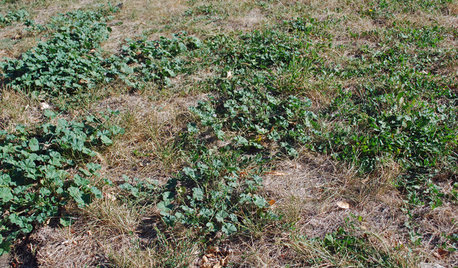
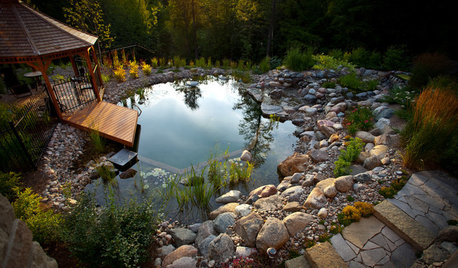





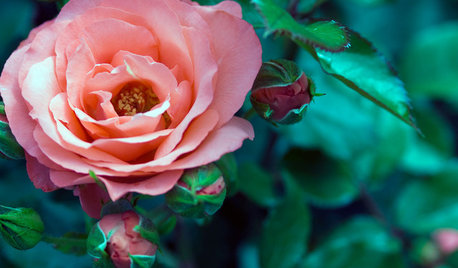
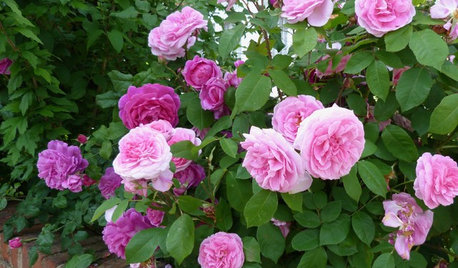







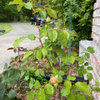

michaelg